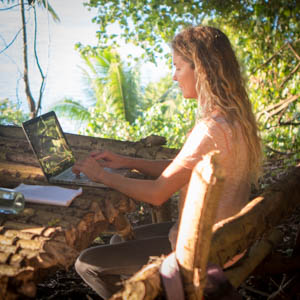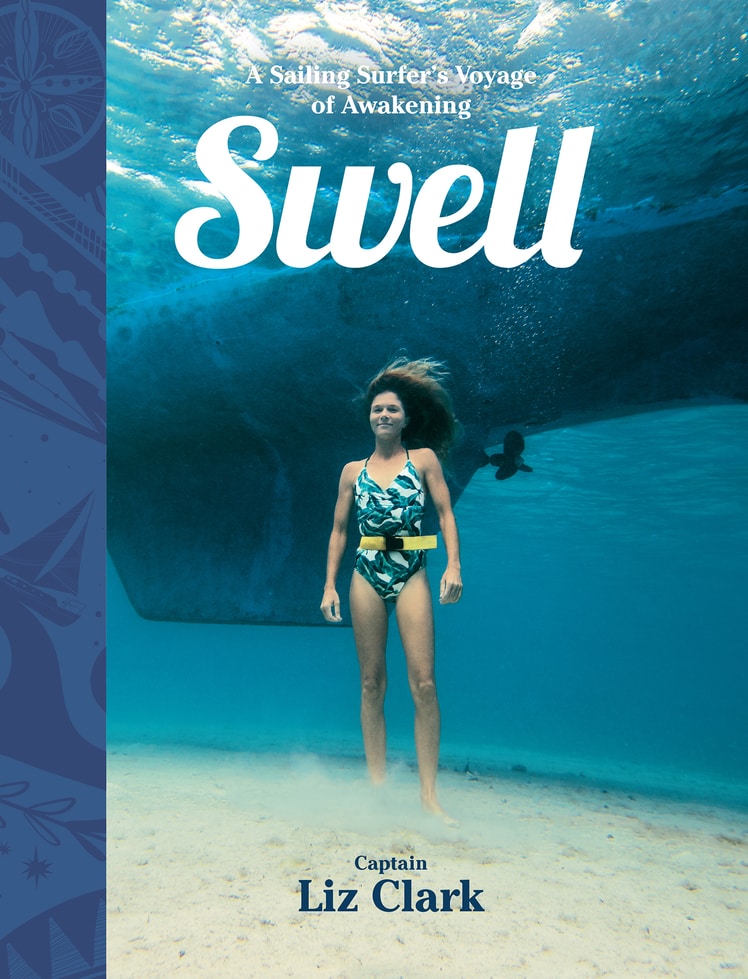The Great Shark in the Sky

So many different ways to see the same sky…
Matai’s presence was commanding. He towered over me upon introduction by ‘Auntie Mary’, a local friend I’d made on the outskirts of the atoll. It wasn’t only his height and solid, muscular girth but his staid demeanor. He looked like a Puamoutu version of Hulk Hogan.
“Matai is our local weatherman,” Auntie Mary said. “We get his forecast whenever we’re going to start our copra.”
Weatherman? My ears perked up. At the right break in the round of sunset conversation, I gently posed Matai a few questions…
At 57 years old, Matai had spent his whole life living on this atoll. His land was family land, passed down for generations upon generations. His work was the same as his father’s, and his father’s father’s, and most of the other families in the atolls for that matter—copra. Until the recent lack of fish in the Society Islands, copra was the atolls’ biggest resource and export. For more than a hundred years, the French have sent ships through the atolls collecting copra for sale to the oil refinery in Tahiti and beyond. Basically, the locals collect the dried brown coconuts fallen from the trees, split them in half with a hatchet, and leave them in the sun to dry for about 4-5 days. Once dried, the meat is removed from the husk and loaded into bags for sale to the next cargo ship.
Matai’s father taught him how to read the weather, so that he could be sure to cover his copra if it looked like rain was on the way. Wet copra rots and mildews, rendering it unsellable. Plus, when he was young, they navigated the lagoon on dugout outriggers with sails and even sailed to Tahiti in similar, bigger outrigger canoes, so understanding local weather was part of survival.
“Every morning around 4:45 am, I get up to look at the sky. This is the most important time to read the weather. If the sky glows orange along the horizon that means the weather will be nice. If the colors are flat and gray with tall clouds, the maramu winds are coming and you better go cover your copra.”
Hmmm, I figured that was good motivation to get out of bed a little earlier than usual…
“Look…over there, the bright star two hands up from the horizon…that’s the star for Tahiti. We followed that star to go to Papeete. And there…” He said, pointing up at the Milky Way starting to pop out of the darkening sky overhead…”That’s the ‘Great Shark’ (Ma’o). The shark crosses the sky from north to south when the wind blows from the east, if it changes, that means the wind has changed direction and we would adjust our course.”
I knew he was referring to ancient local navigation. They used the night sky as their chart…A notion that filled me with respect…The thought of navigating these atolls at night, without a chartplotter, made my knees a bit weak.
The next morning I woke up at 4:30 and poked my head out of Swell’s cabin. The ‘Great Shark’ was partially under the horizon, its tail sticking up across the black part of the sky. I sat and wondered what other cultures called the ‘Milky Way’ as the ‘Shark’ faded out of sight and the horizon to the east glowed a neon orange.
“Looks like I can leave the hatches open today,” I thought, pushing back into my first downward dog…

Sunrise over reef.



